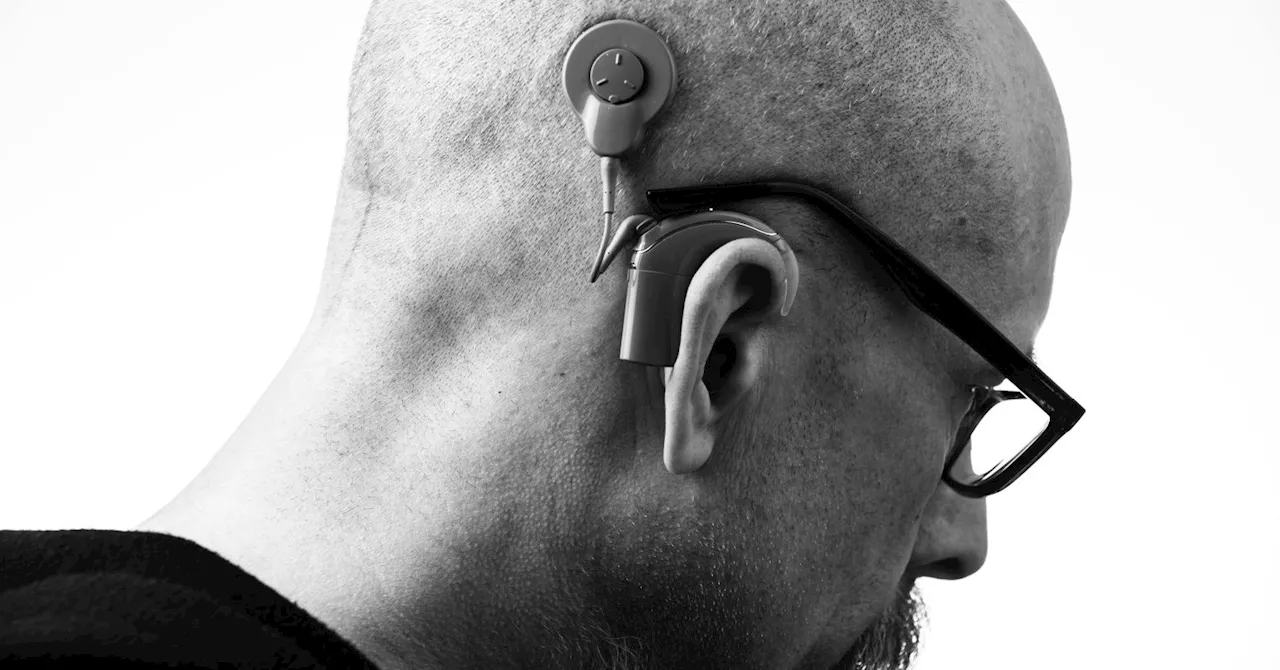This article explores the multifaceted impact of sound on individuals with hearing loss, delving into both the challenges and the joys it presents. It examines how constant exposure to noise can contribute to stress and fatigue, while also highlighting the emotional benefits that can be derived from pleasant sounds.
For people with hearing loss, sound can be a mixed bag. Sometimes, things are too quiet—a whisper or a mumbling presenter who refuses to use the microphone. Other times, they are too loud, like the clacking of cutlery in a crowded restaurant, blocking out your companion’s voice. Even if people with hearing loss can’t physically hear these sounds anymore, they linger in the mind’s ear, accessible through memories.
Imagine the phantom echo of a loved one’s voice, or the persistent hum of a noisy street. These auditory ghosts can contribute to fatigue and stress, exacerbating existing health problems like high blood pressure, heart disease, and many other health problems.The World Health Organization considers noise from traffic to be one of the worst environmental stressors for humans, second only to air pollution. This persistent exposure to noise can significantly impact the well-being of individuals with hearing loss. It is why so many people with hearing loss feel wiped out at the end of a long day of communication.On the other hand, sound can be mood-enhancing. Like the joy felt when hearing a favorite song. Or the peace and tranquility drawn from the call of birds or the wind rustling in the breeze. Some of these pleasant sounds may be hard for people with hearing loss to hear, even with hearing devices. Sounds centered around a major chord will generally produce positive emotions (happiness, surprise), and sounds centered around a minor or diminished chord will consistently produce negative emotions (sadness, fear). Sound is all around us 24/7. We can’t turn it off because we can’t close our ears in the same way we close our eyes. Even when we sleep, our ears are active, although people with hearing loss may get a break from the noise when they remove their devices. Our ears are always busy, but it is our brains that tell us what sound means. Is that siren a cause for alarm? Your location and proximity to the noise are important factors to consider. Your brain will tell you to react one way if the siren is coming up from behind you on the street at high speed versus passing on the street outside your apartment when you are safely inside
HEARING LOSS SOUND NOISE POLLUTION MENTAL HEALTH EMOTIONAL WELL-BEING
United States Latest News, United States Headlines
Similar News:You can also read news stories similar to this one that we have collected from other news sources.
 Black People Who Were Adopted By White Families, Tell Us What You Want People To KnowSay what's on your mind.
Black People Who Were Adopted By White Families, Tell Us What You Want People To KnowSay what's on your mind.
Read more »
 Looking back at Hudson religious leaders who inspire, motivateThese inspiring people of faith spent decades achieving results for the people they served with distinction.
Looking back at Hudson religious leaders who inspire, motivateThese inspiring people of faith spent decades achieving results for the people they served with distinction.
Read more »
 Mental Health Mates Bristol grows to 1,000 membersThe group was set up to help people connect with nature and other people.
Mental Health Mates Bristol grows to 1,000 membersThe group was set up to help people connect with nature and other people.
Read more »
 Tenants at south Montgomery complex say they’ve been without water for daysResidents say they’re still expected to pay full rent and have been told to buy their own water.
Tenants at south Montgomery complex say they’ve been without water for daysResidents say they’re still expected to pay full rent and have been told to buy their own water.
Read more »
 2-alarm fire at Provo apartment complex displaces multiple residentsResidents at a Provo apartment complex were evacuated during bitter cold conditions -- some of them displaced -- after a fire that damaged multiple units.
2-alarm fire at Provo apartment complex displaces multiple residentsResidents at a Provo apartment complex were evacuated during bitter cold conditions -- some of them displaced -- after a fire that damaged multiple units.
Read more »
 Homeless Housing Complex Fire Leads to Dramatic Rescue in Santa RosaFirefighters in Santa Rosa rescued a woman trapped in a fire at a recently completed housing complex for the homeless. The fire broke out on Sunday evening at the St. Vincent de Paul Commons.
Homeless Housing Complex Fire Leads to Dramatic Rescue in Santa RosaFirefighters in Santa Rosa rescued a woman trapped in a fire at a recently completed housing complex for the homeless. The fire broke out on Sunday evening at the St. Vincent de Paul Commons.
Read more »
